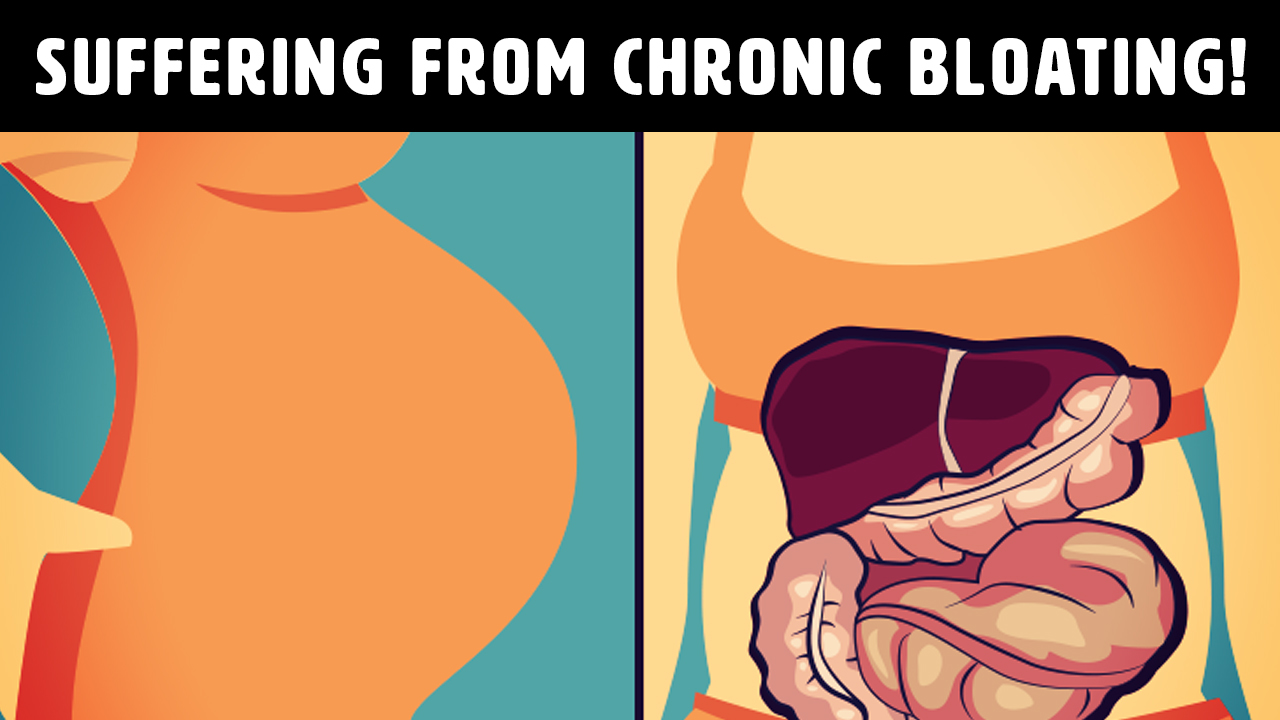Premium Only Content

This Is Why So Many Women Suffer From Chronic Bloating
Stomach bloating has become so common these days that some would even go as far to say it’s an epidemic. But with women it seems to occur much more frequently. Is it because they ate too much of one of their favorite foods? Is it because they dared to have a glass of wine and didn’t drink enough water?
#Bloating #Bloated #HealthTips
Music:
https://www.youtube.com/audiolibrary/...
Summary:
3. Premenstrual Syndrome: Often referred to as PMS, this mental and physical symptom occurs approximately 5-11 days before the beginning of a woman’s menstrual cycle. One of the most common symptoms is bloating.
This type of bloating can be controlled though. Making lifestyle changes such as drinking more fluids, taking vitamins, having a low-salt diet and increasing your exercise and sleep time can all help.
2. Irritable Bowel Syndrome: This disorder is classified by various symptoms with abdominal bloating being the main one. Women do experience extreme discomfort, but their intestines are not in any real danger. This disorder is believed to be caused by an increase or decrease in intestinal contractions. There is specific medication that can be taken for this disorder, so it would be best to speak with a medical practitioner before you take anything.
1. Ovarian Cysts: These are fluid-filled sacs that grow on the surface just inside the ovaries. They develop because of the hormonal imbalance in the body that involves the luteinizing hormone – responsible for signaling the ovary to release an egg.
When cysts grow, it can result in pressure and bloating to the abdominal area. In most cases, the symptoms are manageable, so doctors just monitor the cysts. If they grow to a point where the symptoms are no longer manageable, they can be surgically removed.
Ovarian cysts are most commonly formed while a woman is ovulating. Ovulation occurs when a woman's ovary releases an egg once a month. Most women who have ovarian cysts do not display any symptoms, and they are typically harmless. Ovarian cysts are most commonly caused by hormonal problems. These types of cysts usually go away without the need of any type of treatment. Women with endometriosis may develop cysts which are called endometrioma. This occurs when the endometriosis tissue attached to the ovary begins to form a growth. This type of cyst can cause pain during a woman's period. Cysts can also develop during early pregnancy, and can also be caused by pelvic infections which spread to a woman's ovaries and fallopian tubes. Although most ovarian cysts do not cause any symptoms because of their small size, there are some symptoms associated with certain types of cysts. This includes bloating, swelling, or pain located in the lower abdomen. This pain is typically sharp or dull. Some other symptoms include pain during a woman's period, pain during sex, pain in the lower back or thighs, pelvic pain, unexplained weight gain, tenderness in the breasts, and the need to urinate more often than usual.
Now, those are the most common reasons why women are constantly bloated, but there are also other common reasons why EVERYONE gets bloated.
3. Infection: Your abdominal areas can become bloated or inflamed if you have an infection. The triggers of the infection are what cause the bloating because the white blood cell count is elevated around the pelvic, urinary and gastrointestinal organs
2. Constipation: This is a common reason why many people have a bloated abdominal area. Constipation causes the stool to remain in the intestines, which puts major pressure on the stomach, leaving you with pain, discomfort and gas. The two main reasons for constipation are not eating enough fiber, and not drinking enough water.
1. Dehydration: Have you ever noticed the day after you’ve consumed salty foods or drinking alcohol that you’ve become dehydrated and bloated? The reason behind this is that when your body tries to recover from dehydration, it holds on to excess water to prevent it from occurring again. This means that when you finally decide to drink some water, it’s likely to be stored for a longer period of time.
-
 9:38
9:38
Bestie
2 years ago7 Red Foods You Must Eat That Can Save Your Heart Health
6541 -
 4:22
4:22
KNXV
3 years agoDo you suffer from chronic itching? Find relief at the Ahn Clinic for Medical Acupuncture
11 -
 1:08
1:08
Reuters Innovation
3 years agoGaza women create cosmetics from local herbs
64 -
 48:13
48:13
Union Hill Church of Christ
3 years agoWhy Suffer?
9 -
 3:13
3:13
KSHB
3 years agoNurse uses kayaking as escape from chronic disease
4 -
 4:03
4:03
KGTV
3 years agoHelping women emerge from the COVID-19 pandemic
51 -
 4:28
4:28
KTNV
3 years agoBeyond the stigma: words for women from women
17 -
 LIVE
LIVE
Bannons War Room
8 days agoWarRoom Live
8,636 watching -

House Committee on Energy and Commerce
4 days agoO&I Hearing: Examining the Biden Administration’s Energy and Environment Spending Push
21.4K -
 2:10:18
2:10:18
Matt Kohrs
14 hours agoThe Crypto Crash, Stock Bounce & Breaking News || The MK Show
54.7K3